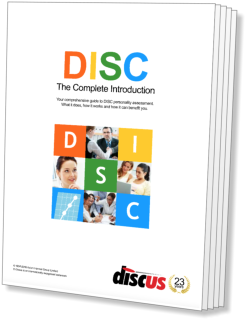Pressure Responses
Different people respond to pressure in different ways. Knowing how a person will react under pressure can be extremely useful in guiding management decisions. Understanding when a person's behaviour betrays feelings of pressure can also be extremely advantageous in a number of ways.
'Pressure' in this sense is defined as a short-term effect. The source of pressure will depend on the particular style in question. A Driver, for example, will feel pressured if they do not have direct control over a course of events, but this situation would cause little concern to, say, a Planner. For a discussion of the needs of different styles, see the section on Motivation.
There is a distinction in DISC between 'pressure' (a short-term effect rarely lasting more than a few days, resulting usually from outside factors) and 'stress' (a more long-term effect lasting months or even years, usually due to a combination of factors). To assess the more complex phenomenon of stress, it is necessary to examine a full DISC profile series. See the section on Stress for further details.
The reactions of the four main types to conditions of pressure are:
|
|
Driver: Because Drivers like to operate from a position of control, they use this as a basis for their pressure reaction. They will adopt a highly assertive, even aggressive, stance in the face of difficulties, dictating solutions and expecting immediate responses to their instructions. |
|
|
Communicator: A Communicator's natural response to almost any problem is to try to talk themselves out of it, and this approach underlies their pressure reaction. Placed under pressure, the Communicator will adopt a verbal attacking style, accusing others of causing problems, highlighting shortcomings in systems and other people, and generally laying blame. |
|
|
Planner: Being a Receptive style, the Planner will try to avoid conflict and preserve relationships in a pressure situation. For this reason, their normal reaction will be to attempt to reach an equitable compromise solution. Because they are naturally sympathetic individuals, the Planner will usually try to see both sides of an argument or problem. |
|
|
Analyst: Like the Planner, the Analyst will also wish to avoid coming into conflict with others. Their method of dealing with pressure, however, is more evasive in style. Analysts faced with a difficult situation will try to extract themselves from it by changing the subject, or making vague promises of action. In extreme cases, they can even go so far as to ignore the problem altogether, in the hope that somebody else will solve it. |
The four intermediate types combine the pressure reactions of their associated main styles. An Assertive style, for example, lying between the Driver and the Communicator might use a dictating or an attacking response, or both, depending on the particular situation in which they find themselves. For convenience, their combinations of pressure responses are listed below.
|
|
Assertive: Dictating / Attacking |
|
|
Open: Attacking / Compromising |
|
|
Receptive: Compromising / Evading |
|
|
Controlled: Evading / Dictating |

